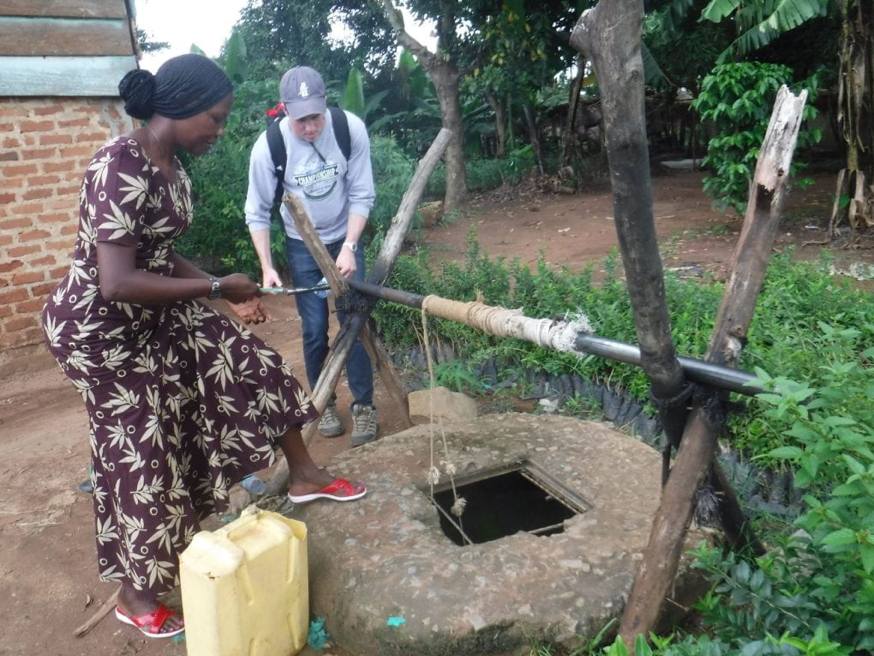Engineers Without Borders (EWB) provides WashU students with an opportunity to serve and learn by implementing sustainable engineering projects.
In rural villages in Uganda, gathering water can be an intensive, all-day chore. Villagers — usually children and women — must walk miles to water sources to fill large containers to carry back to their homes. Reduced rainfall in recent years has also forced farmers to search for irrigation water or risk losing their crops.
To bring clean water to those in need, members of Engineers Without Borders (EWB) at Washington University in St. Louis have partnered with St. Francis Health Care Services, a medical center in the Central Region of Uganda, to build a new well for local villagers.
In 2019, students traveled to Uganda to meet with leaders of the nearby villages and assess a potential site, but their work was halted by restrictions caused by the COVID-19 pandemic. In 2022, a motivated team of five students and a faculty member from the McKelvey School of Engineering decided to move forward with the well drilling.
“In our assessment trip three years ago, we had the hydrogeologist analyze the site and identify a couple locations to drill for water,” said Raymond Ehrhard, faculty adviser for EWB and senior lecturer of energy, environmental & chemical engineering. “We decided to do a remote well drilling, which means our students managed everything, but a local EWB office was on site for the actual drilling.”
The students collaborated with hydrogeologists and engineers from Engineers Without Borders USA and Engineers Without Borders Uganda, and the results exceeded everyone’s expectations.
“After test pumping, our team confirmed a yield of 20 cubic meters an hour,” said Caleb Martonfi, project lead and a junior majoring in chemical engineering. “Other nearby wells only yield one to two-and-a-half cubic meters per hour.”
One cubic meter equals 1,000 liters or 265 gallons of water. In fact, there was so much water that it shocked local officials with the National Water and Sewage Corp., who had given up drilling in that area.
